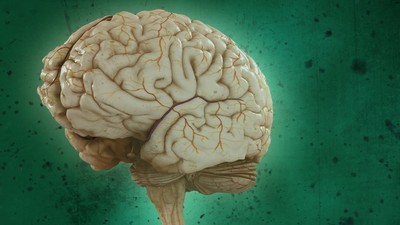Mary Robinson gets special envoy job on UN climate change
THE FORMER IRISH PRESIDENT MARY ROBINSON HAS BEEN CHARGED WITH OVERSEEING GLOBAL EFFORTS TO TACKLE CLIMATE CHANGE.
United Nations secretary general Ban Ki-moon has appointed M/s Robinson as special envoy for climate change in an urgent move ahead of an international summit on the crisis within months.
The unexpected assignment means she has to immediately stand down from her role as special envoy to the Great Lakes, where she had responsibility for trying to bring peace to one of Africa’s most troubled regions.
 “I have mixed emotions at handing over the role in the Great Lakes region when I make my final report to the Security Council on August 7, but ultimately I feel it is appropriate that I respond positively to the request of the secretary-general,” she said.
“I have mixed emotions at handing over the role in the Great Lakes region when I make my final report to the Security Council on August 7, but ultimately I feel it is appropriate that I respond positively to the request of the secretary-general,” she said.
“His focus on climate change and his faith in my capacity to help make progress on the challenges it presents is, I believe, an affirmation of the work of the Foundation I lead.”
Ms Robinson set up The Mary Robinson Foundation – Climate Justice in 2010 to campaign for justice for victims of climate change.
“Our work on climate justice emphasises the urgency of action on climate change from a people’s perspective and I intend to take this approach in my new mandate as special envoy for climate change,” she said.
In a statement, the UN said Ms Robinson’s roles as foundation president and special envoy will be kept separate “but the synergies are very clear and should be of mutual benefit”.
“There was a degree of urgency in the appointment because of the 2014 Climate Summit which the secretary-general will host in September with heads of state and government, business, civil society amongst those invited to attend,” said a spokesman.
“Therefore the secretary-general asked Mary Robinson to accept the post, with immediate effect, which will continue to the climate talks to be held in Paris in December 2015.”
M/s Robinson, now 70, was Irish president from 1990 to 1997.
Irish skills shortage may cost us thousands of IT jobs


Thousands of Irish software jobs could be lost to overseas unless measures are taken to combat a skills and investment shortage, according to a report published today.
The “Irish Software Landscape” study claims that a lack of technically skilled staff posed a danger to the continued strength of the IT sector in Ireland.
The report, which was compiled by Lero – the Irish Software Engineering Research Centre; the University of Limerick, and the University of Cambridge, highlights the growth in the IT sector in recnet years. Irish firms who took part in the report grew their staff by 39pc, while overseas firms increased their headcount by 23pc.
However, the report claims the shortage of technical staff as well as sales and marketing expertise pose a real threat to the long term future of the sector.
 “There is a danger that thousands of jobs could be created overseas rather than in Ireland,” commented Professor Brian Fitzgerald, chief scientist at Lero.
“There is a danger that thousands of jobs could be created overseas rather than in Ireland,” commented Professor Brian Fitzgerald, chief scientist at Lero.
“The challenge is particularly acute for our vital indigenous sector as graduates tend to be more attracted to multinational household names.
“Even amongst multinationals there is the danger of an ‘arms race’ whereby firms compete for top graduates, salaries are pushed up and, as a result, Ireland loses competitiveness,” he added.
The report echoes concerns that have been raised by numerous executives in the technology space in Ireland in recent years.
Google’s country manager here John Herlihy has flagged the relatively weak standards among graduates when it comes to maths and sciences, while PayPal boss Louise Phelan touched off a storm of controversy after she claimed that some graduates joining her company carried a “sense of entitlement” about them when they started work at her offices.
The Government has highlighted the IT sector as an engine for economic recovery in the years ahead but the report claims Ireland is facing huge competition from other countries.
“The UK has now moved ahead in relation to incentivising investment and a number of Eastern European countries have eliminated income tax for software employees.
“Ireland needs to review its current investment and taxation policies to ensure that it does not lose out to more highly incentivised models in the UK, including Northern Ireland, and Eastern Europe.”
MORE AND MORE BUSINESSES ARE LOOKING OVERSEAS FOR STAFF.
“Currently somewhere between 40pc and 55pc of jobs are filled in this manner,” said the University of Limerick’s Helen Lenihan.
“These immigrants make a major contribution to Ireland but more attractive tax regimes may attract them home. It would be a real missed opportunity if the success of the Irish software industry had more employment significance for Eastern Europe than Ireland.”
Playing games & puzzles may help us to stave off Alzheimer’s disease


Mentally stimulating games or doing puzzles and crosswords may help stave off Alzheimer’s disease new research suggests.
Doing crossword puzzles could help stave off Alzheimer’s disease new research has found.
These kinds of brain-stimulating activities could help to preserve vulnerable brain structures and cognitive functions the presented to the Alzheimer’s Association International Conference said.
The researchers from Wisconsin Alzheimer’s Institute and the Wisconsin Alzheimer’s Disease Research Center found people who reported playing games such as cards, crosswords or other puzzles, were more likely to have a greater brain volume in several regions involved in Alzheimer’s disease.
They examined 329 people with an average age of 60 who were healthy but deemed to be at a higher risk of Alzheimer’s disease due to their genetic background or family history.
But Alzheimer’s Research UK said that while the study contributes to the “use it or lose it” debate, it does not confirm whether or not playing such games prevents the condition.
Dr Laura Phipps, science communications manager at the charity, said: “Observational studies like this are not able to pinpoint cause and effect, but they can be useful for identifying factors that may influence our risk of memory decline and dementia.
Meanwhile:-
Scientists study finds no evidence that taking B vitamins protects the brain


The lead author said ‘the evidence just isn’t there’ that multi-vitamin is good for the heart or the brain.
Taking B vitamins to stave off mental decline and Alzheimer’s disease is likely to be a waste of time, research has shown.
Scientists said people would be better off eating more fruit and vegetables as part of a balanced diet.
EARLIER CLAIMS HAD SUGGESTED THAT B VITAMINS MAY PROTECT THE BRAIN?
Vitamins B9 – also known as folic acid – and B12 are known to reduce blood levels of a compound called homocysteine that has been linked to Alzheimer’s.
According to the “homocysteine hypothesis”, taking supplements of the vitamins could reduce the risk of developing the disease.
But a new study bringing together data from 11 trials involving 22,000 people suggests the theory is unfounded.
Although B vitamins did reduce blood levels of homocysteine by around a quarter, this had no effect on the mental abilities of participants.
Measures of mental processes such as memory, speed and executive function were the same for those taking the vitamins and dummy placebo pills.
Lead researcher Dr Robert Clarke, from Oxford University, said: “It would have been very nice to have found something different. Our study draws a line under the debate: B vitamins don’t reduce cognitive decline as we age.
“Taking folic acid and vitamin B12 is sadly not going to prevent Alzheimer’s disease.”
The findings are published in the American Journal of Clinical Nutrition.
Taking folic acid supplements before and during early pregnancy has been shown to reduce a woman’s risk of having a baby with a neural tube defect, such as spina bifida.
Many countries have adopted population-wide folic acid food fortification programmes.
But the idea that B vitamins can slow the slide towards mental decline or Alzheimer’s is much more controversial.
Dr Clarke added: “Taking supplements like B vitamins doesn’t prevent heart disease, stroke or cognitive decline.
“About 25% to 30% of the adult population take multi-vitamins, often with the idea that they are also good for the heart or the brain, but the evidence just isn’t there.
“Much better is to eat more fruit and vegetables, avoid too much red meat and too many calories, and have a balanced diet.”
Dr Simon Ridley, head of science at Alzheimer’s Research UK, said: “Although one trial in 2010 showed that for people with high homocysteine, B vitamins had some beneficial effect on the rate of brain shrinkage, this comprehensive review of several trials shows that B vitamins have not been able to slow mental decline as we age, nor are they likely to prevent Alzheimer’s.
“While the outcome of this new and far-reaching analysis is not what we hoped for, it does underline the need for larger studies to improve certainty around the effects of any treatment.”
Dr James Pickett, head of research at the Alzheimer’s Society, said: “While taking B vitamins may not help everyone, they may have some benefits in specific groups of people with dementia.
“However, this study suggests that we need much more work to establish more evidence for this.”
Hugh Perry, chairman of the Medical Research Council (MRC) Neurosciences and Mental Health Board, said: “Science progresses through testing and re-testing previous research and sometimes overturning existing theories.
“Health advice always needs to be based on the best available data from the largest possible studies and this is even more important when the findings have implications for what we do or don’t eat and drink.”
The research was partly funded by the MRC and Department of Health.
Boarding pass set to go as Ryanair launches new smartphone app
A new App will make it easier for customers to browse air fares, book and check-in from today.
Ryanair passengers with smartphones no longer have to worry about printing their boarding passes for upcoming flights.
From today, Ryanair passengers with smartphones no longer have to worry about printing their boarding passes for upcoming flights.
The low fares airline has unveiled a new smartphone app which allows passengers to board flights using an electronic boarding pass rather than printing one out.
Passengers will also be able to check fares, make bookings, choose seats, book hotels and check-in for upcoming flights , using the app.
Passengers who do not have smartphones can still check-in on the website and print boarding passes in the usual manner.
The app is available to download in both iPhone and Android formats, in English, Spanish and Italian.
Hubble telescope spots bizarre ‘string of pearls formation’ in space


The NASA Hubble Space Telescope has captured imaged of a 100,000-light-year-long string of star clusters wrapping around the cores of two merging galaxies.
NASA’s Hubble Space Telescope has spotted a strange celestial “string of pearls” wrapped around the hearts of two merging elliptical galaxies.
The curly string is about 100,000 light-years long and sports blue “pearls” — actually huge young star clusters — every 3,000 light-years along the way, researchers said. You can zoom in on the beautiful structure, and learn more about it, in this new Hubble video.
“We were surprised to find this stunning morphology,” study leader Grant Tremblay, of the European Southern Observatory in Garching,Germany, said in a statement. “We’ve long known that the ‘beads on a string’ phenomenon is seen in the arms of spiral galaxies and in tidal bridges between interacting galaxies. However, this particular supercluster arrangement has never been seen before in giant merging elliptical galaxies.”
The two colliding galaxies, which lie within a cluster known as J1531+3414, are both about 330,000 light-years wide, researchers said. (For comparison, the disk of our own Milky Way spans about 100,000 light-years.)
Their merger has sparked an intense burst of star formation, resulting in the creation of the clusters of young, blue stars. The physics behind the string-of-pearls structure are similar to the processes that cause rain to fall in drops as opposed to steady streams, researchers said.
It’s unclear where the cold gas that’s fueling the star formation came from. It may have existed all along within the two merging galaxies, or it may have condensed from the bubble of superhot plasma surrounding the duo, perhaps cooling out of the shock wave created by the cosmic collision, researchers said.
“Whatever the origin for this star-forming gas is, the result is awesome,” Tremblay said. “It’s very exciting. You can’t find a mundane explanation for this.”
The bright blue arcs surrounding the galaxy cluster in the new Hubble photo are light from distant galaxies, which the cluster’s powerful gravity has warped into strange patterns, researchers said.




No comments:
Post a Comment